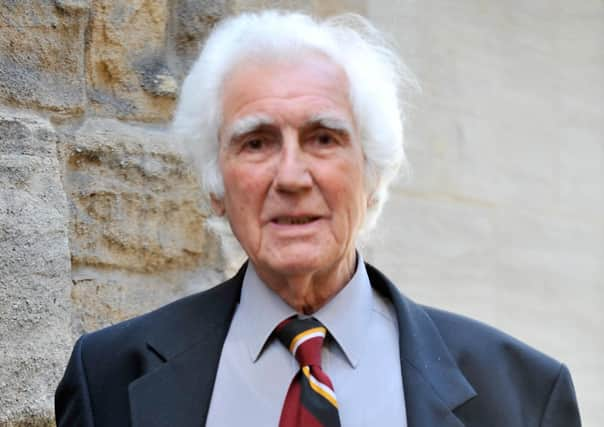Obituary: Douglas Parker, Normandy veteran


Douglas Parker who has died at 98, was one of the last surviving Yorkshire veterans of the initial D-Day assault on the Normandy beaches on June 6, 1944.
Mr Parker, who hailed from Intake, Sheffield, was among the first ashore on Sword Beach at 7.20 that morning, as an infantryman with the Second Battalion East Yorkshire Regiment, having to brave a hail of enemy gunfire. The assault aimed to clear the way for an invasion force to establish the foothold in mainland Europe that would ultimately reclaim it from the Nazis.
Advertisement
Hide AdAdvertisement
Hide AdHe had joined the forces in 1941 at 18, “as a way to escape”, he said, leaving behind his job as a metal window frame maker.
Instead he fought in one of the bloodiest battles of the war.
“I really didn’t know what I was getting into. It was really rough. We were boxed in for quite a while. But it had to be successful, and it was,” he recalled in recent years.
“If it hadn’t, it would have been a catastrophe. It was the worst part of the war – it was in such a small area.”
Advertisement
Hide AdAdvertisement
Hide AdHis training had taken place mostly in Dumfries and Galloway in south-west Scotland, before his unit was moved to the market town of Waterlooville, near Portsmouth, ready for the decisive attack.
His unit sailed across the Channel on the Empire Battleaxe, making the final journey to the beach in purpose-built flat-bottom craft which each carried around 35 men.
“It was just pot luck who was going to get there first,” he said. “Our objective was to make the place clear for all the thousands of troops to follow, and that’s what we did. We had heavy casualties.”
The first death came before they even landed. Eric Ibbotson, Mr Parker’s platoon sergeant, was killed by a stray bullet when a loaded Sten gun fell from a table. The ammunition ricocheted around, severing the main artery in his thigh.
Advertisement
Hide AdAdvertisement
Hide AdActing as platoon runner, Mr Parker was the last off the ramp. “I dashed out, and I could see the machine gun bullets hitting the sand about 10 yards in front of me,” he remembered. “I could see the machine gun bullets hitting the sand about 10 yards in front of me.”
He took cover before pressing on. “I ran up and there was this chap, Corporal Wilkinson, lying on the sand. He said, ‘Help me, help me’.
“I dragged him to a little stone wall, laid him behind there and shouted to the stretcher-bearers who were hard at work, but he died. He was one of those enthusiastic soldiers – ‘Let’s get at them’. He’s buried at Hermanville Cemetery.”
Mr Parker’s war was not yet over. He served in Palestine before demobbed in 1946, at which point he returned to his job and met his wife, Maureen, a shorthand typist, at a City Hall dance. They married in 1952.
Advertisement
Hide AdAdvertisement
Hide AdAwarded France’s highest distinction, the Légion d’honneur, in 2016, he returned many times for D-Day commemorations. His final trip was for the 75th anniversary in 2019 with his son, the Reverend John Parker.
Maureen died in 2019, aged 90, and Mr Parker is survived by two sons, five grandchildren and a great-granddaughter.
Comment Guidelines
National World encourages reader discussion on our stories. User feedback, insights and back-and-forth exchanges add a rich layer of context to reporting. Please review our Community Guidelines before commenting.